“At times our own light goes out and is rekindled by a spark from another person. Each of us has cause to think with deep gratitude of those who have lighted the flame within us.” -Albert Schweitzer
It was an action-packed week here at Starts With A Bang, where we took on all of the following:
- How do black holes make such bright quasars? (for Ask Ethan),
- No, ISS astronaut Scott Kelly did not take a picture of a UFO,
- Dark matter's secrets revealed by colliding galaxy clusters (for Mostly Mute Monday),
- Strange but true: dark matter grows hairs around stars and planets,
- How Einstein's relativity saved the solar system (a 100th anniversary special),
- and The scientific truth everyone should be thankful for on Thanksgiving.
There's so much more that's on its way, including our second podcast coming next week, an upcoming holiday giveaway for the lucky submissions chosen for Ask Ethan, and some more spectacular articles about how the Universe came to be, and how we know it. (Oh, and we've also almost unlocked the next Patreon reward, for real! Let's make it happen before 2015 is out!)
Now, join me as we jump in to our Comments of the Week!
Image credit: ISS astronaut Scott Kelly, via https://twitter.com/StationCDRKelly/status/666042034633883649/photo/1?r….
From Dean on the "UFO" seen from the ISS: "'As I explain, however, this is simply light reflecting off of the ISS’s HDEV module, nothing more complex or extraordinary than that.'
That’s what they WANT us to believe."
What's kind of remarkable is that no one caught my real mistake: it wasn't the HDEV module at all that caused the reflection, but rather the window shutter to the ESA's Destiny's Lab.
So, I suppose, it could be construed as a case of Europeans pranking Americans, and our tendencies to "want to believe." This is what we get for having American Thanksgiving, isn't it, Europe?
From Gary S on dark matter hairs vs. haze: "Is there some reason to think the (undetectable!) dark matter particles have a [preferred] travel direction near our solar system? If not, then there would be no “hairs” – just a haze around massive bodies with only slightly increased concentration."
There are two things that I want to respond to here, one of which you've realized and one that you haven't. Dark matter particles are expected to move in a virialized fashion, which means their velocities should be randomly distributed with a gradient towards/away from the center of gravity. The Earth's motion -- around the Sun and through the galaxy -- should be added/subtracted from that.
In addition, we don't think that dark matter should have the same rotational speed around the center that the normal matter does, so Earth should be moving, on average at 190-250 km/s relative to the dark matter.
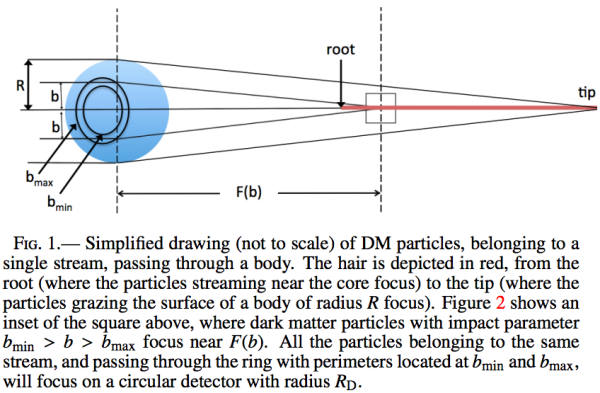 Image credit: Gary Prezeau, via http://arxiv.org/abs/1507.07009.
Image credit: Gary Prezeau, via http://arxiv.org/abs/1507.07009.
But then there's this part: the focusing part. If there's dark matter coming in at the same trajectory, which there ought to be, the planet's gravity will focus that into a stream, and then into a hair. Commenter Wow made an allusion to this when he said:
"Gary, the idea is that this is a similar thing to [gravitational] lensing, where gravity makes a stream of particles bend their path, refracting to a focal point."
The main difference is that there is a velocity dispersion and an impact parameter range here, which leads to the development of a hair. The important point, though, is that this fluffy, diffuse "cloud" of dark matter will generically give rise to a caustic, or a point where the density spikes incredibly high, the same way that a magnifying glass focuses the Sun's rays to a point.
 Image credit: flickr user Dave Gough, via https://www.flickr.com/photos/spacepleb/1505372433.
Image credit: flickr user Dave Gough, via https://www.flickr.com/photos/spacepleb/1505372433.
This is a generic behavior of cold, collisionless dark matter, even if it's isothermally distributed. This was shown by Pierre Sikivie in (I believe) 1995, and is accepted and used by astrophysicists everywhere. It's even referenced in Gary Prezeau's paper. Sikivie was on my thesis defense committee; it's amazing how small the world of cosmology truly is.
Image credit: The Observatories of the Carnegie Institution for Science Collection at the Huntington Library, San Marino, Calif.
From Gary S on the successor to the Hooker 100" telescope: "“Mt. Wilson, which then housed a telescope twice as large…”
If you meant the 200 inch, isn’t that on Mt. Palomar?"
The 200" Hale was on Mt. Palomar instead of Mt. Wilson, you are correct. The 100" was on Mt. Wilson and Hubble was the primary name associated with both. What's interesting is the 100", commissioned in 1917, was the largest in the world until the Hale, with only Otto Struve's 82" telescope (in the 1930s) coming close. When the 200" was commissioned in the late 1940s, it was the largest until the Soviet BTA-6 in 1976 and the second largest until the Keck telescope in the 1990s.
What I think is remarkable is the advent of segmented mirrors and of telescope arrays. No longer are we limited by what glass can do under the force of gravity, but rather by finances alone. More area = more light = more power, and when it comes to exploring the distant Universe, that means more details, more data, and more knowledge.
From Hephaestus on comets and Oort clouds: "People always refer to passing stars disturbing our Oort cloud and launching a comet Sun-ward. What about the Sun disturbing other stars’ clouds and drawing off one or more of their Oortlets? We must be near the edge of the Centauri system’s cloud."
Don't let a diagram like this -- which is on a logarithmic scale -- fool you. The Oort cloud may go out as far as about half a light year, but the gravitational binding is extraordinarily tenuous. When a star comes close by us, which happens every few 100,000 years or so, our Oort cloud objects get perturbed, and so do theirs.
Yes, these stars should have their own Oort clouds, and the mutual interactions should perturb both our Oort cloud objects and also theirs. But consider the difference between these two scenarios:
- 50% of our perturbed Oort cloud objects will lose velocity with respect to our Sun, reducing their orbits and sending them closer to the inner Solar System. A few of these -- the ones that lose the most heliocentric velocity -- get close enough to the Sun to become comets.
- 50% of the other star's perturbed Oort cloud objects will gain velocity with respect to its Sun, many (perhaps most) of which will be ejected from their solar system. But only a tiny percentage will wind up being directed towards our inner Solar System, and an even smaller fraction will get an additional gravitational interaction that causes them to wind up on a stable (elliptical, rather than hyperbolic) orbit.
So it's possible, but we can say with 98%+ certainty that each comet we see from the Oort cloud is from our Oort cloud.
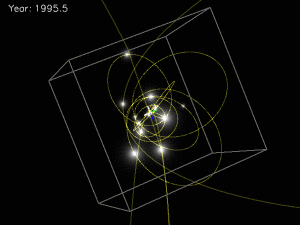 Image credit: Keck / UCLA galactic center group / A. Ghez et al., via http://astro.uchicago.edu/cosmus/projects/UCLA_GCG/.
Image credit: Keck / UCLA galactic center group / A. Ghez et al., via http://astro.uchicago.edu/cosmus/projects/UCLA_GCG/.
From Waterbergs on a black hole's event horizon: "Does this mean the event horizon of the [black holes] gets squashed out of spherical into some increasingly strange shape? As I understand it [Sagittarius] A* has a mass of about 4 million solar masses. If one assumes each [black] hole contributed around 20 solar masses then this means 200 000 black holes merged to create it."
The event horizon of a non-rotating black hole is spherical; the event horizon of a rotating black hole is not. What's really fun here is that the singularity of a non-rotating black hole is a point; the event horizon of a rotating black hole is a ring, or a 1-dimensional singularity rather than a 0-dimensional one.
It isn't the act of mergers that cause the distortion; it's the end state, and how much angular momentum it has. The event horizon winds up being ellipsoidal rather than spherical, and more technically like an oblate spheroid. Fun, but counterintuitive stuff!
And finally, from Denier as a follow-up on the Lemaître/Hubble controversy: "When originally learning of this story, I seem to remember the reason the critical portion wasn’t translated was because Albert Einstein criticized it. Prior to publication, he shared his finding with Einstein who replied with something to the affect of ‘I can’t find any fault in your math but your physics are atrocious’. Lemaître held Einstein in high esteem, and that scorching rebuke caused Lemaître to doubt his own work. The section wasn’t translated because Lemaître was trying to save himself from further ridicule."
Einstein said a lot of dismissive, wrongheaded things, particularly after 1915. He derided every new development in quantum physics; he railed against the developing science of particle physics; he constantly returned to his old, discredited ideas; he failed to appreciate the nuance and insight of his contemporaries like Pauli, Schrodinger, Bohr, Dirac and others. In short, Einstein got left behind.
This is very different than my favorite stories from the book Denier refers to: The Very First Light by Mather and Boslough, which really give some insight into how dogmatic Fred Hoyle was. He was so repulsed by the idea that the Big Bang could be right, because it seemed to jive somewhat with a biblical story and because the innovation could be connected to Lemaître, a priest, that he never let a shred of evidence sway his opinion. In short, despite all the developments he initiated in stellar nucleosynthesis and other areas of cosmology and astrophysics, he became one of the saddest stories in all of late 20th century science.
Those of you who want to learn more about that particular time of development in science will particularly enjoy chapters 4-6 of my book, Beyond The Galaxy: how humanity looked beyond the Milky Way and discovered the entire Universe. It's available for your holiday shopping now, for pre-order and for 30% off with the code WS15XMAS30 at checkout. Get copies for yourself, and for all your science-minded friends, today!
- Log in to post comments


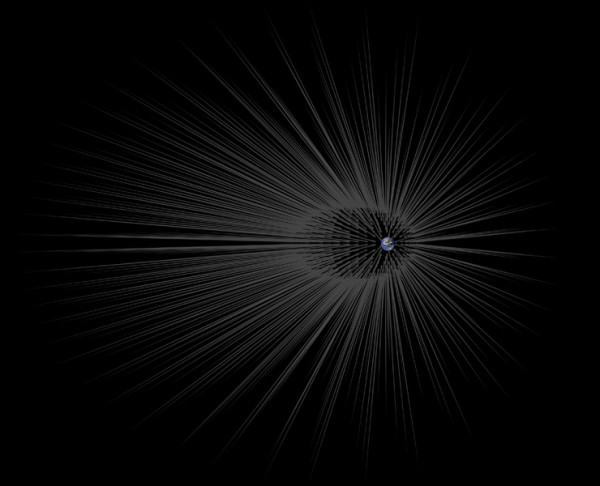

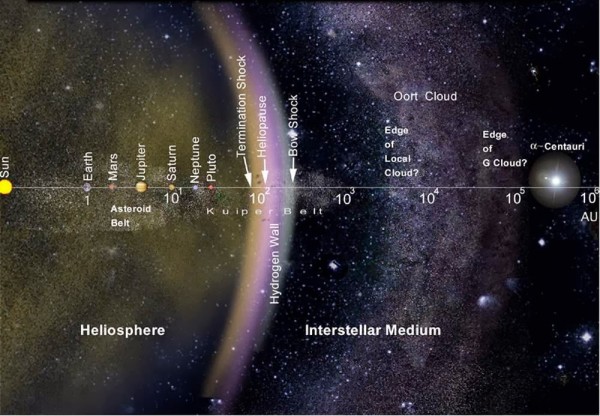
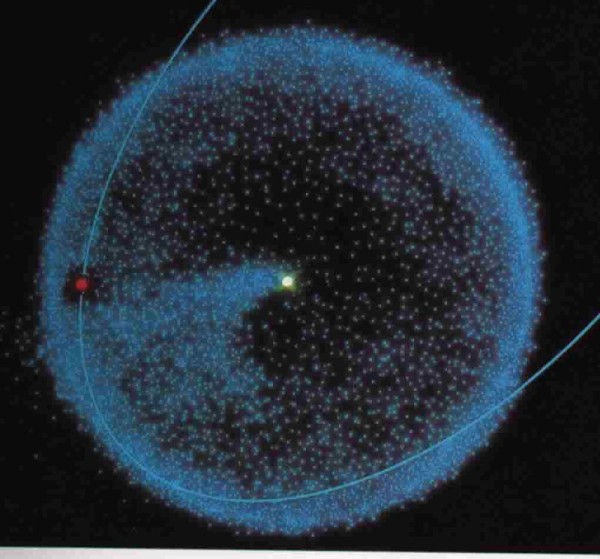

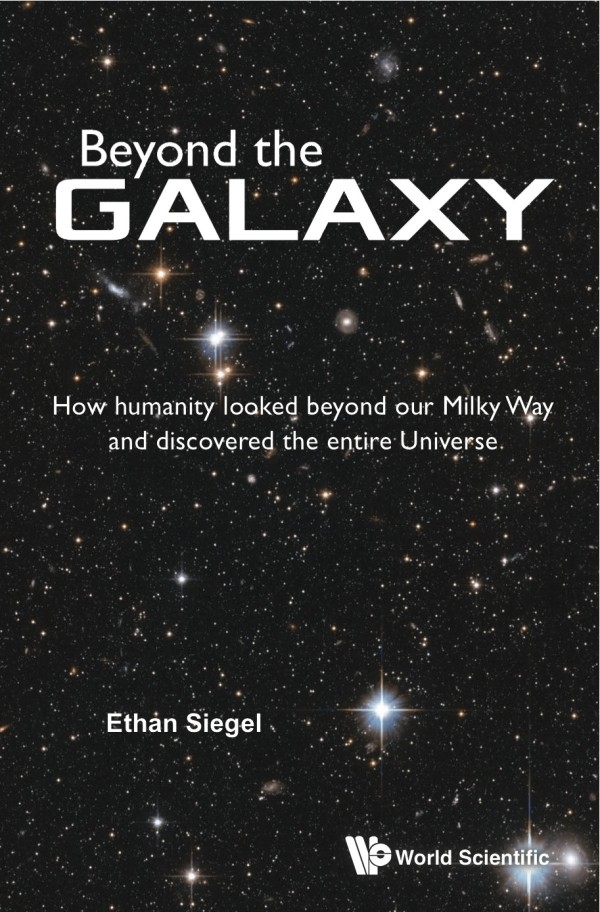
Einstein did change his mind, though, when a large amount of evidence (similar to the observations that showed GR was "true").
Hoyle never did change.
At least not whilst he was talking as a professional.
Hoyle, had written several popular astronomy/astrophysics books, which I grew up with. I was especially captivated by his discussion of stellar evolution, which was why I became an astronomy major. I guess in some manor, he was the Sagan, or Tyson of his day. His continuous creation cosmology always felt contrived to me, despite the fact that I ate up his popular works.
I have changed my mind on how our modern monetary system actually functions and no longer see federal balance sheet debt as the same way a state, business or household see's it's balance sheet.
Wynne Godley's sectoral balances is something that everyone should read up on and comprehend so we can better understand how to use our fiscal resources.
It's always amazed me at how to get their own fiscal way, even economists insist that government money should act as if it were the same as your household budget.
When it does not, and never has, and has been proven time and time (and time) again.
Government makes money from money moving around.
This was found out to be true when the feudal societies of Europe, after the black death had decimated the working class, making them far more valuable than the land (where previously, because of their numbers, the land was far more valuable than the workers, hence slavery), and mercantilism and government taxing economic activity took over as the revenue generation system of choice.
Turns out if you tax the wealth of wealthy people, you get meager returns in gold, but if you tax the middle class and that middle class have wealth enough to spend, then you get massive returns in silver.
And FDR showed how an industrial nation that never had anything other than a middle class to tax could spend its way out of a recession by, even if only effectively giving the money away to poor people on "makework" projects, giving poor people money to spend.
But somehow for 30 years the only allowed economic mantra was how the money was limited and government budgets had to be constrained and balanced.
Of course, over those same 30 years, banks have gone from seeing deposits as an asset to seeing debts as an asset, because trickle up has NEVER been the case, it only gets sucked up.
But despite that current reality being accepted by economists, *government* debt was still seen as a massive problem.
I can only guess that those with the biggest voice to be heard were wealthy, and all those government spending tasks that actually worked never gave THEM any money directly. And seeing the "poor" get money that they couldn't take most of really grinds their gears. "Forget" the knowledge that their spending trickles up into the profits of companies they own the largest stakes in. They don't think that far ahead. Or that clearly. "I WORKED HARD TO GET THAT!!!", when actually others worked hard for it, they just ponied up the "risk" of paying the salary before selling their work.
Of course, if that risk ever pans out, the workers will be cut before the net goes negative.
After all, they don't want to *actually* take a risk at losing...
Though a welcome change of perspective, christ knows what the hell it has to do with the topic to let us know. And my long post just added to the tangent.
While hanging around, I'd like to point out to Ethan I deliberately left out the gravitational when talking about lensing, because ANY lens uses the same effect, just not using gravity to do it. Optics use refraction. Gravitational lensing uses gravity. But the process they enact is the same: create a focal point of higher intensity.
So putting the "gravitational" there was
a) more typing
b) not needed
c) unnecessarily limiting
Wow - I probably agree with a lot of what you are saying there, in terms of the principles. One consideration vis a vie the contemporary situation, is that whereas in the past governments were pretty much stand-alone entities the situation now is that they substructure in a globalized system.
Globalization has always gone on of course, but compared with now, all of that was just the very long tail feeding into the exponential surge, which has happened and continues to happen.
Based on the history and facts as you lay them down, I think the consistent projection of that, is in the direction of everything shifting up a level. It may only be at the global level that there is independence from the spending within means budgeting calculcus that dominates all other levels, now to include national governments.
Chris, the problem is in a capitalist system, money moves effortlessly,whereas governments won't let people move (see Trump's asshattery for an example), and they have to undergo a lot of effort to move if they're allowed to.
THAT problem needs to be addressed, no matter if we do anything about global governance or fiscal policy, because nothing can be done unless it's done for the wealthy unless every single country agrees.
And how likely is that to happen?
I think, however, this has been going off topic for too long, so I won't be making further comment except on the dumpthread.
Well it's an immensely important subject and I'd certainly acknowledge a focus on realistic solutions with a chance of rolling out, is very much key.
"because it seemed to jive somewhat with a biblical story and because the innovation could be connected to Lemaître, a priest, that he never let a shred of evidence sway his opinion"
He's not alone on that count. Look at the way the CMB anisotropy - which exhibits cosmological alignments with the ecliptic - in a steadily stronger form, the odds of fluke chance now being on the order of millions to one. Look at how that is hushed up by spoken or unspoken agreement, present company very much included.
Or the Rare Earth Hypothesis. That got ignored for years despite excellent credentials and a really robust argument.
So he's not alone. And it's the same deal. People don't want to accept that it's a robust signal, because they can't think in their own minds how something like that could be true, and yet have a naturalist explanation. Same deal.
"Look at the way the CMB anisotropy – which exhibits cosmological alignments with the ecliptic"
Does it?
You see, when people claim that something is definitely there by fiat, they can't really go and complain that it's being hushed up and not talked about.
Because it could very well be that it doesn't exist in the sense you make it out, and sound like a crank when you blurt that stuff out.
Mostly it's used by geocentrists to "prove" that the earth is the centre of the universe. Which isn't a good place to start from in science.
See here for some things to think of on the evidence of that alignment:
http://www.geocentrismdebunked.org/take-the-cmb-alignment-challenge/
"Or the Rare Earth Hypothesis. That got ignored for years despite excellent credentials and a really robust argument. "
Because there's nothing to show we're especially special, and every rational thought would be that this is unlikely (by definition of the word special).
For one problem, our location is very very poor. We're right on the inside edge of the "goldilocks zone" and the sun gets hotter as it ages, so we will go outside the habitable zone billions of years before the sun goes nova and swallows the earth (which we may avoid because the sun will be losing mass before then, and our orbit will be further out because of this change).
A lot of assertiveness, not much evidence of skepticism.
"Chris, the problem is in a capitalist system, money moves effortlessly,whereas governments won’t let people move (see Trump’s asshattery for an example), and they have to undergo a lot of effort to move if they’re allowed to."
No Not Really, Look at all the cloak and dagger via "Bitcoin" that the Chinese are using to move wealth around the globe.
I can attest as I have moved monies in and out of war torn countries.
And could follow them if wished. The distinction is the Monies owner and his will to follow.
Back in the heyday Of the Iraq War you could get 20+% on Iraqi Govt Bonds short/medium term. banking on the local/ foreign govts to resolve issues.
I know, I have a SHIT LOAD of skin in the game over there.
"No Not Really"
Yes, yes. Really.
Do you need a residential visa to transfer money abroad or just a Visa Debit card? When GSK open up a new office, do local politicians rail against GSK taking their jobs, or do they give them whatever they want so that they'll "bring job creation" to the town?
"Look at all the cloak and dagger via “Bitcoin” that the Chinese are using to move wealth around the globe."
Yes, I looked. It doesn't make ANY sense to refer to it as proof of your "Not really".
"I can attest as I have moved monies in and out of war torn countries."
You aren't Syrian. And from countries you've war torn.
And you needed a visa, didn't you. Did your money need a visa?
There is one way in which you're right: the denomination of the money is important. If you're trying to do international trade in anything but dollars, the USA will freedom and democracy your ass into the stone age for the presumption of not supporting the USA's international terrorism.
Hi Wow - It actually does exist as a wholly unexplained phenomenon. There have been major studies now by teams of physicists in good standing. The idea that it's not there or that it's currently explicable is completely false.
I respect that you don't agree. But have you, or would, consider the possibility of a kind of group-blindness on the part of the majority of the mainstream on this matter? It might not be true, but it is a reasonable possibility....as we know from history. It has happened many times before.
The link you give there (the site not the link) is a case in point of what is driving this. Do you not think that if a plausible explanation was found to a scientific standard, that it would not be very welcome in the peer reviewed journals?
The site is a case in point because there is an implicit (i.e. unexamined) hard coupling between the observed phenomenon, and geo-centrism.
Why don't you speak to one of the physicists that have run a recent, and major, study of the phenomenon?
Hi Wow - The Rare Earth Hypothesis is a really robust argument involving many threads. You're objection about the positioning in the galaxy could be allowed with very little impact on the hypothesis.
What is compelling about the basic idea is that it so happens that all advances in detail and write large, across the entirety of science, of the last 50 years, converge to the same very heavy constraints on the existence of complex life.
It's worth noting that the hypothesis is about complex life.
Ragtag says " know, I have a SHIT LOAD of skin in the game over there."
Sounds suspicious...how comes?
"Hi Wow – It actually does exist as a wholly unexplained phenomenon. "
No, it doesn't.
"There have been major studies now by teams of physicists in good standing."
That's true enough, but that's really just proving that the compound claim "wholly unexplained phenomenon" is rubbish.
"But have you, or would, consider the possibility of a kind of group-blindness on the part of the majority of the mainstream on this matter? "
Yes.
Have you considered that it's a shibboleth created to make you feel superior to "experts" who don't see what you do? That it is cherry picking and presumption rather than a really existent thing?
"It might not be true, but it is a reasonable possibility"
You have to show that it exists as a thing. Currently it doesn't appear to coincide except vaguely with our ecliptic. Which since it could be any of 90 degrees and it's only within 5-15 of our ecliptic, means that this "amazing coincidence" would be the case for about 8-25% or planets randomly distributed around the universe.
Moreover, if it were something significant, what the hell is it? "Oh, it's unexplained", well so is the hole in my underpants. Damn things just seem to get a hole as if some really weird moth fetish is endemic.
Because maybe it doesn't NEED explaining.
If, as it's being used, it is supposed to show the earth is the centre of the universe, then it should be exactly coincident, not something like 10+ degrees off.
Explain what it is that needs explaining.
"The link you give there (the site not the link) is a case in point of what is driving this."
Really? So what's driving this is that you can't explain why it's still an amazing coincidence when it's maybe 15 degrees off? That doesn't seem to be a problem with science or scientists, just those JAQing off.
"The site is a case in point because there is an implicit (i.e. unexamined) hard coupling between the observed phenomenon, and geo-centrism. "
When it's used to push geocentrism, then unless you can explain what the hell it is you think is inexplicable and what you think it suggests,then why the hell should anyone else spend time and effort doing the work for you? Why should the not suppose it's geocentrism being pushed if you're not clarifying it any?
"Why don’t you speak to one of the physicists that have run a recent, and major, study of the phenomenon?"
Why don't you know enough to do so, yet "know enough" to make such a huge song and dance over it and presume that "the scientific body" is wrongheaded?
"Hi Wow – The Rare Earth Hypothesis is a really robust argument involving many threads. "
And so is any creationism teaching. The robustness and multiplicity of threads is what is claimed about that by the proponents too.
You're forgetting entirely the central thesis of science: skepticism *ESPECIALLY OF YOUR OWN SELF*. How do you know they're robust? Counting? How do you know that there aren't as many or more robust problems with it?
For example, you COMPLETELY AND UTTERLY ignored the problem with claiming we're in the "goldilocks zone". We're damn near not. And that zone is pretty large. But ignored in favour of going "Oh, it's a well thought out theory".
Has it explained why we're so rare? That includes the chances of it happening by chance, remember. Staggering coincidences happen to you several times a week. Many more would have occurred that did not because you chose a different path. Noticing the coincidences that DO happen without working out the matrix of possibilities really just means you're looking for patterns and being amazed to find one after some effort.
Big whoop.
Instead of you coming along and making claims and, when asked to clarify or defend, "dodging" the problem and going "Oh, ask someone else, they're really good!" is NOT what you're going to be allowed to do.
YOU defend the claims.
Hell, MAKE one.
One other than "Oh, maybe you're not considering this...". Why should I?
"converge to the same very heavy constraints on the existence of complex life"
Just like some very specific writing leads to "Science Fiction". Problem is, we can't really define it, so we have to point to it and go "That's SF!".
So defining "Complex life" as "Life we can recognise as it" with a window of visibility to see the various ways planets can organise themselves by chance that can't even manage to go an entire light year yet, really isn't anything other than going "Oh, well, of all the places we look, it only happens on Earth. We MUST be special!". Selection bias and presumption is going on, not thinking.
self-indulgent little creature aren’t you
disgusting
proof:
http://scienceblogs.com/startswithabang/2015/12/17/what-are-quantum-gra…